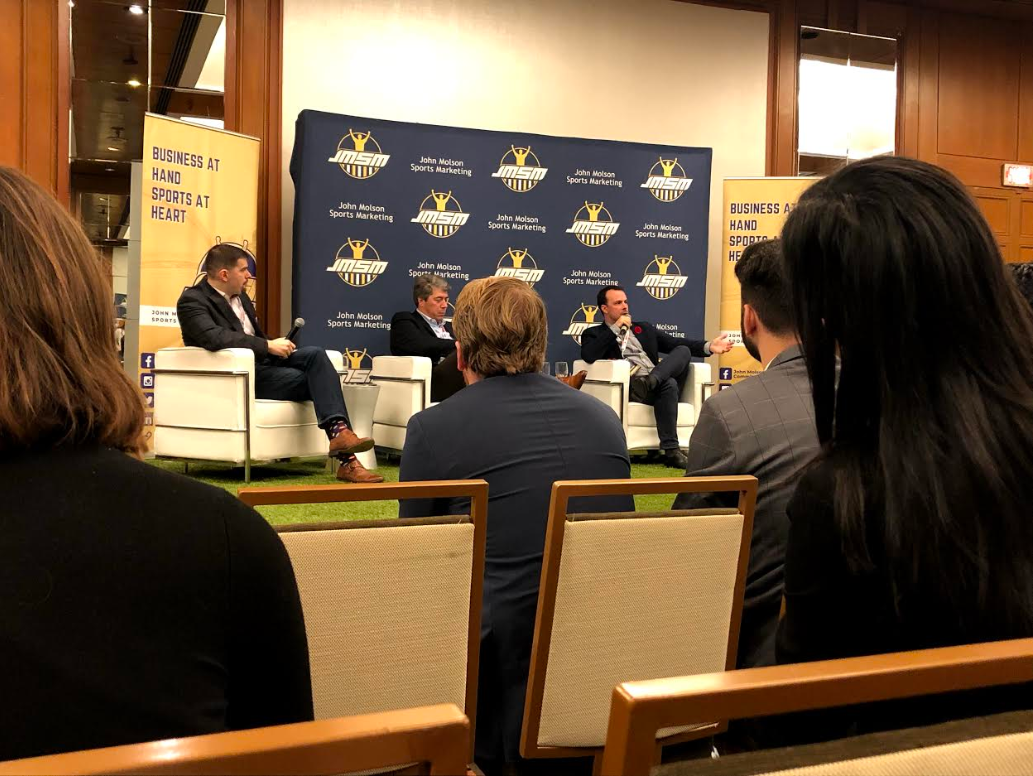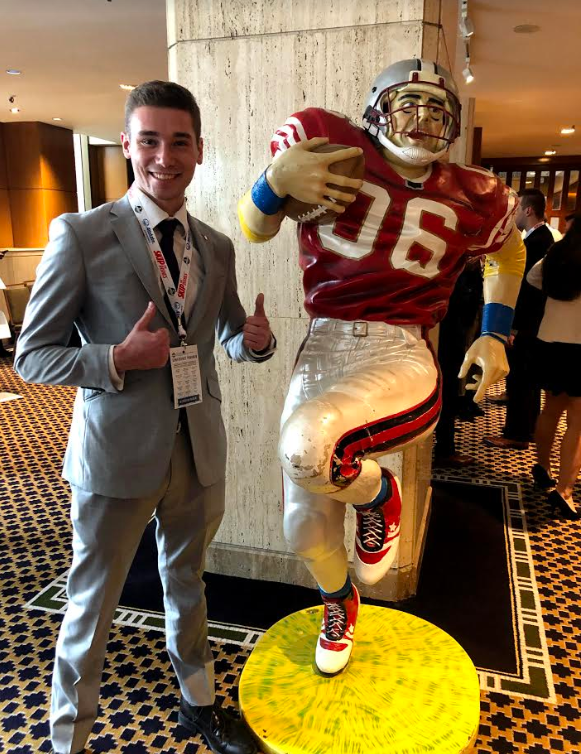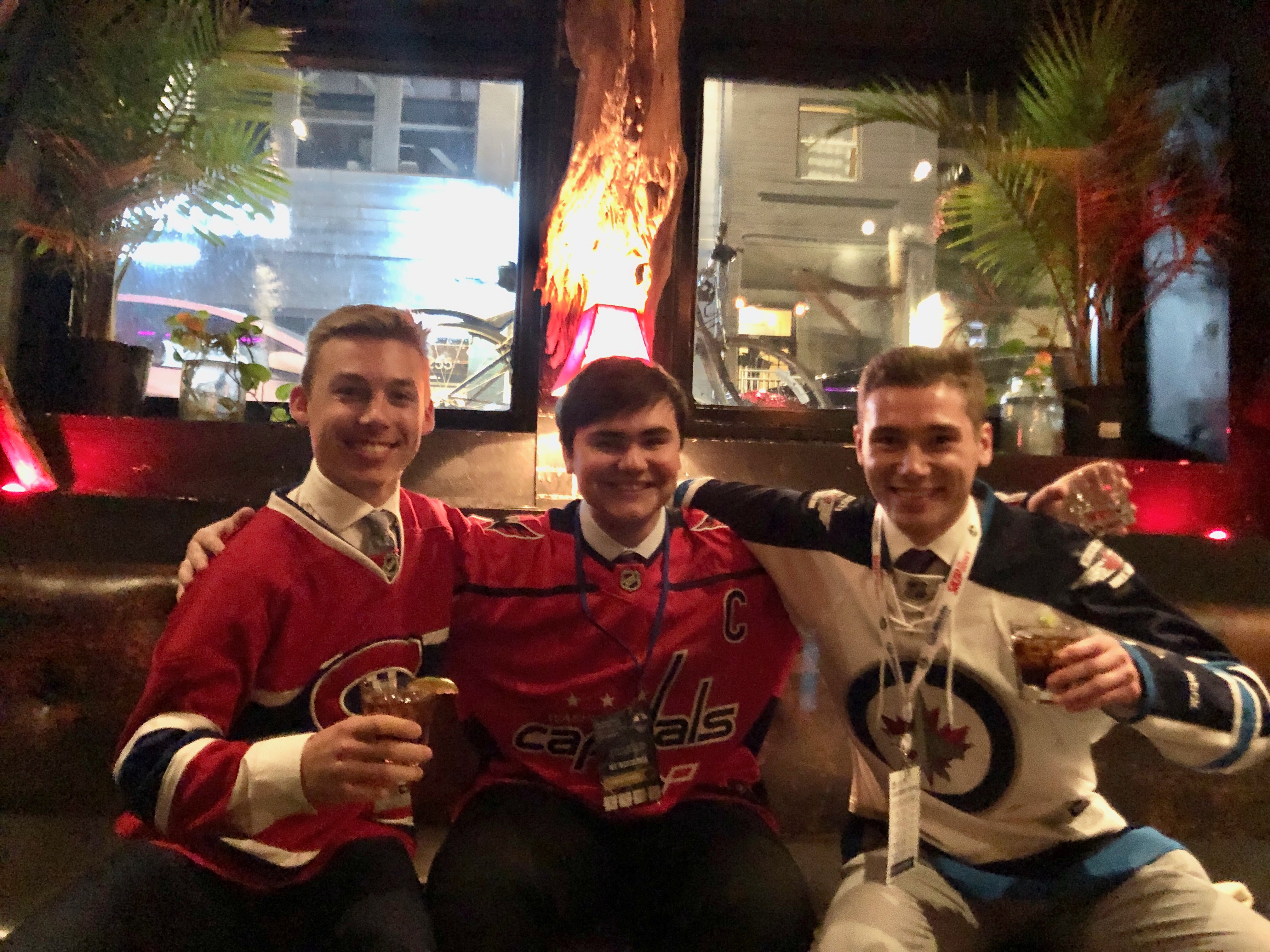The following article was written by Asper students Ryan Kozera, Kristin Smith, Felipe Garcia, Teeson Thompson, and Wes Oryniak who attended the John Molson Sports Marketing/Business Conference (JMSM) in Montreal, Québec.
The John Molson Sports Marketing/Business Conference (JMSM) is the largest student-run sports conference in Canada. The conference celebrated its 24th anniversary this year, and it showcased an incredible reputation for creating value by bringing several high caliber sports executives who care, listen, share their stories, and answer questions. The conference took place over three days in Montreal from November 7th-9th 2019, featuring panels, workshops, and networking events.
Virtually every department and its role within the sports business context was addressed over the course of the weekend, including marketing, finance, operations, and analytics. In fact, panels were structured with each functional area in mind, with one panel addressing touch points with sports fans, another showcasing the power of analytics, and others delving into topics of sponsorship, organizational financial health, and legalities. Workshops were supremely interactive, and executives were not shy providing their contact information at the recruitment cocktail. The JMSM Conference is a great opportunity to learn, understand, and network exclusively with top executives of MLB, NBA, NFL, and NHL teams.

Each of us summarized our key takeaways:
Teeson:
During the conference, there were many moments where I was appreciative of how insightful the speakers were and for the great advice they had for the eager student audience, myself included. One takeaway that I had was how important it is to get involved in the field you are striving to get into and to really pursue every opportunity that you can. Whether it is by volunteering, applying for an internship, or working on a major project, getting out there and making yourself known is crucial and will give you a competitive advantage over other candidates when applying for a job. This lesson I learned at the conference doesn’t just go for the sports industry. Getting involved and gaining experience before applying for a job can benefit you in almost any field or industry and that is something I will definitely keep in mind for the future.
Ryan:
For anyone studying at Asper, you would have undoubtedly been told about the importance of networking. By attending the JMSM Conference, all of us learned how very true that statement is, especially in the sports industry. Many of the speakers told us that without the connections they made from networking, their opportunities to gain entry into the sports business world would have been limited. Additionally, career advancement also benefited from expanding that network. Overall, the best way you can network is by putting yourself out there and attending events where you can meet like-minded students and business professionals.

Felipe:
Sports teams are a business much smaller than you think. Teams, on average, have 150 employees, which means everyone knows their peers members from other teams. Since it is a small industry where there are only 32 teams/companies, everyone knows each other, teams executives stressed the importance of networking. Nonetheless, this was a sports conference focused on students interested in entering the industry; it also shared meaningful life and professional lessons. An interesting fact shared by Mark Ditmars, the VP of Corporate Partnerships of the Toronto Blue Jays, was how six years ago the Jays were part of the bottom five revenue producing teams in the MLB. The Jays organization has focused on the long term process, which builds trust with its corporate partners. Now in 2019, even though they did not do great in the field, they have become one of the top five teams with the highest income. The reason why Mark from the Jays shared this was to remind students to trust the process and focus on doing great step by step and therefore, the importance of creating a great legacy wherever you step your work.
Wes:
After having the opportunity to hear from some of the top executives from various different teams and leagues, one thing became glaringly evident: if you want to work in sports, you’ve got to be the best. This of course wasn’t a surprise, but hearing the different routes many of these executives had taken to arrive at their current roles was eye opening. Many of them espoused the same sentiment, you can’t have a one track mind. You have to be willing to take on opportunities as they are presented, and not close yourself off to things that initially seem scary. I think this lesson applies to all expert fields, not just sports management: if you want to get to the top, you have to go out and get the skills that are going to allow you to hit the ground running regardless of the industry you end up in.
Kristin:
Here are a few more key insights:
- Don’t get caught up in being a sports fan. If all these executives wanted to hire was a super fan, they would simply pluck someone out of the crowd at a home game. Be the best, and have a passion for the organization, not the players. As Greg Kirstein of the Columbus Blue Jackets put it “if you think you’re gonna have a beer with the players, you’re wrong.”
- Volunteer. No place is too small to start. You never know who you rub shoulders with in the sports world.
- Sports is dynamic and changing, despite the enduring appeal of the game in question. Consumers want more from their arena experience – premium food and beverages, pristine facilities, and good parking, to name a few. Despite these higher expectations, arena attendance is shrinking. Arenas are being built smaller, and streaming is increasingly preferred. Long story short: Adapt or risk losing fans’ attention to another league.

If these takeaways are any indication, the JMSM Conference is an incredibly valuable event, and we would all recommend it 10x over.